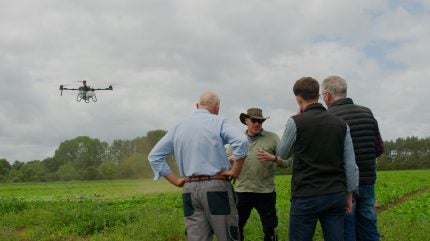
British multinational retailer Marks and Spencer (M&S) is conducting its first retailer-led autonomous field farming trial to reduce the carbon emissions from its parsnips.
The initiative, being performed in partnership with Huntapac, uses robots and drones to cultivate parsnips with a significantly lower environmental impact.
The team has implemented a “minimum till” approach to farming, which helps keep carbon locked in the soil, and has introduced a green fertiliser that reduces nitrogen dioxide emissions.
These innovations have led to a reported 46% reduction in carbon emissions compared to standard farming methods.
The trial aligns with M&S’s commitment to becoming a net zero business across its supply chain by 2040.
It also aims to improve crop yields and quality, with AI monitoring crop health and autonomous technology mitigating weather-related impacts.
The first fully autonomously farmed parsnips will be sold at select M&S stores in November 2024.
M&S’s Farming with Nature programme complements these efforts by enhancing biodiversity through measures such as AgriSound technology, which monitors pollinator activity, and wildflower borders to support wildlife.
The parsnips, grown in Yorkshire, are part of the first M&S Food project funded by the retailer’s Plan A Net Zero accelerator fund.
The fund was established to support innovative projects that accelerate its journey towards Net Zero.
M&S Food technical director Andrew Clappen said: “Innovation is at the heart of M&S Food and our Plan A Accelerator Fund offers us the opportunity to tap into the entrepreneurial spirit of our suppliers. Projects like this help us move towards being a net zero business across all our operations and entire supply chain by 2040, whilst focusing on the quality of produce that M&S is famous for.
“Agriculture is one of our biggest contributors to emissions, so it’s important that we find new lower-impact farming methods. Trialling new ways to support our Plan A roadmap to Net Zero is an important step on the journey and this project has helped deliver more parsnips at M&S quality, a carbon reduction and brings together new technologies which if adopted more widely would create more highly skilled jobs and attract new talent into the sector.”



